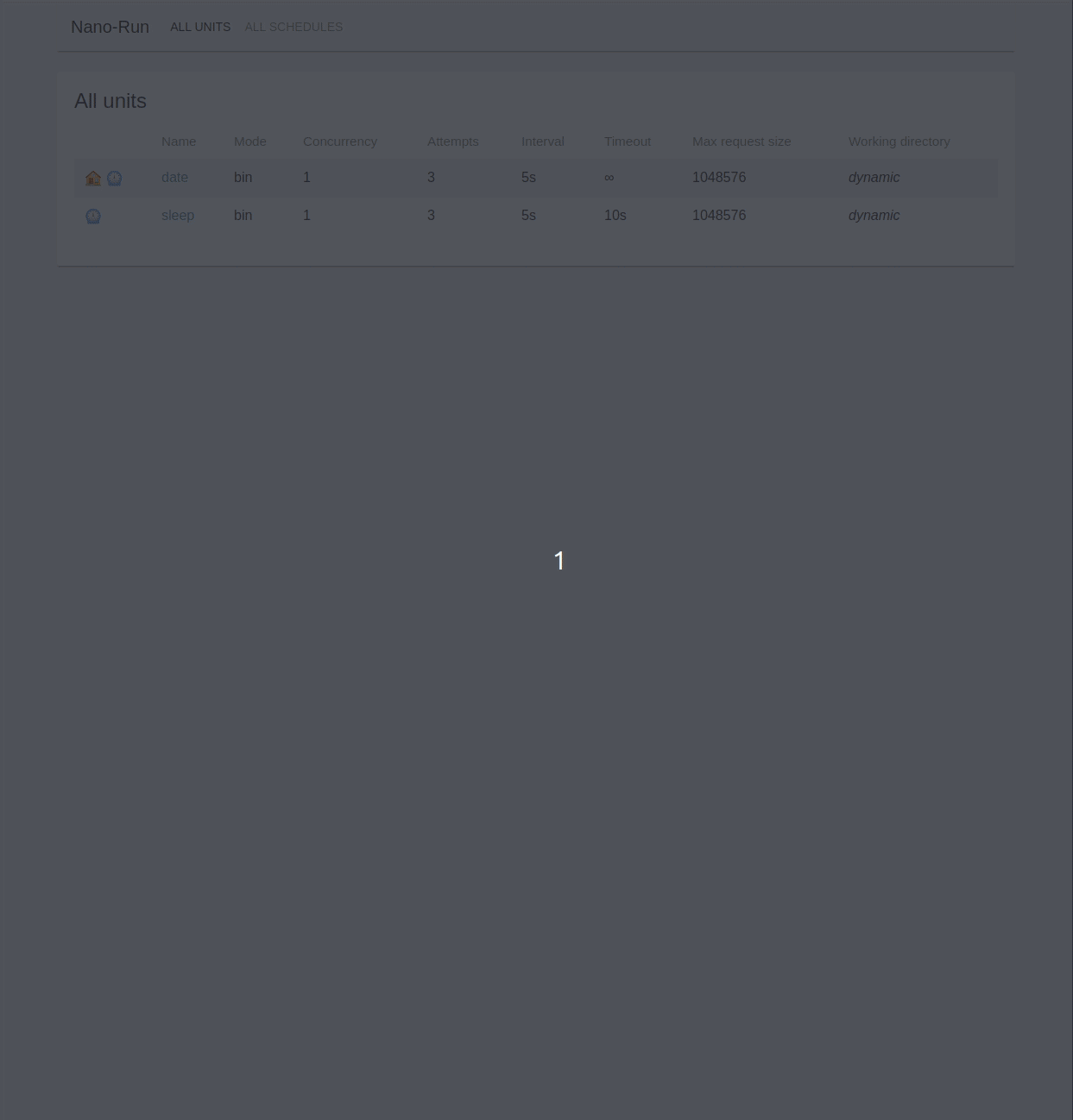4.5 KiB
Nano-Run
Lightweight async request runner. GitOps friendly.
A simplified version of trusted-cgi designed for async processing extreme amount of requests.
Main goals:
- Should have semi-constant resource consumption regardless of:
- number of requests,
- size of requests,
- kind of requests;
- Should be ready to run without configuration;
- Should be ready for deploying in clouds;
- Should support extending for another providers;
- Can be used as library and as a complete solution;
- Performance (throughput/latency) has less priority than resource usage.
Please note that the project is being developed in free time, as a non-profitable hobby project. All codes, bugs, opinions, and other related subjects should not be considered as the official position, official project, or company-backed project to any of the companies for/with which I worked before or/and at present.
TODO:
- On attempt failed job
- On failed job
- On success job
- Per endpoint swagger
- Pickup file as an artifact
Documentation
- Installation
- Quick start
- Architecture overview
- API
- API Authorization
- UI
- UI Authorization
- Unit configuration
- Docker
- Cron-like scheduler
Stability
(After 1.0.0)
We are trying to follow semver:
- Patch releases provides fixes or light improvements without migration
- Minor releases provides new functionality and provides automatic migration if needed
- Major releases provides serious platform changes and may require manual or automatic migration
Within one major release, it guarantees forward compatibility: new versions can use data from previous versions, but not vice-versa.
Reproducible binaries
The project tries to follow best practices providing reproducible binaries: it means, that you can verify that complied binaries will be exactly the same (byte to byte) as if you will compile it by yourself by following our public instructions.
License
The project (source code and provided official binaries) are licensed under Apache-2.0 (see License file, or in plain English) and suitable for personal, commercial, government, and others usage without restrictions as long as it used with abiding license agreement.
Do not forget to bring your changes back to the project. I will be happy to assist you with PR.
The project uses external libraries that may be distributed under other licenses.
Installation
Debian/Ubuntu
(recommended)
Tested on 20.04 and 18.04, but should good for any x64 version.
Add the repository (only once)
sudo apt-key adv --keyserver hkp://keyserver.ubuntu.com:80 --recv-keys 379CE192D401AB61
echo "deb https://dl.bintray.com/reddec/debian all main" | sudo tee /etc/apt/sources.list.d/reddec.list
Install or update nano-run
sudo apt update
sudo apt install nano-run
Automatically creates service nano-run.service.
Binary
Download and unpack desired version in releases.
Docker
docker pull reddec/nano-run
From source
Requires go 1.14+
go get -v github.com/reddec/nano-run/cmd/...
Ansible for debian servers
- name: Add an apt key by id from a keyserver
become: yes
apt_key:
keyserver: keyserver.ubuntu.com
id: 379CE192D401AB61
- name: Add repository
become: yes
apt_repository:
repo: deb https://dl.bintray.com/reddec/debian all main
state: present
filename: reddec
- name: Install nano-run
become: yes
apt:
name: nano-run
update_cache: yes
state: latest
Quick start
(optional) initialize configuration
nano-run server init
it will create required directories and files in a current working directory.
define a unit file
Create minimal unit file (date.yaml) that will return current date (by unix command date) and put it
in directory run/conf.d/
run/conf.d/date.yaml
command: date
start nano-run
nano-run server run
now you can open ui over http://localhost:8989 or do API call: curl -X POST http://localhost:8989/api/date/

